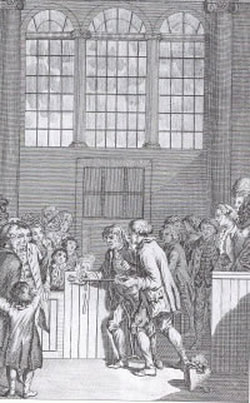Further Reading
Baker, JH. “Benefit of Clergy in England and its Secularization 1450-1550” in "Ins Wasser geworfen und Ozeane durchquert": Festschrift für Knut Wolfgang Nörr. Mario Ascheri, Knut Wolfgang Nörr, eds. Berlin: 2003, pp.273-289 Bellamy, JG. “Benefit of Clergy in the Fifteenth and Sixteenth Centuries” Criminal Law and Society in Late Medieval and Tudor England, St Martin’s Press: 1984, pp. 115-164 Hanawalt, Barbara. Crime and Conflict in English Communities, 1300-1348. Harvard University: 1979 Kesselring, Krista. Mercy and Authority in the Tudor State. Cambridge University Press: 2003 Shoemaker, Robert. Prosecution and Punishment: Petty Crime and the Law in London and Rural Middlesex, c 1660-1725. Cambridge University Press: 1991 Music: "Evening Melodrama" by Kevin MacLeod (www.incompetech.com)
0 Comments
Leave a Reply. |
Site Map |
© 2013-2024 Footnoting History. All rights reserved.
Footnoting History and the Footnoting History logo
are trademarks of Footnoting History, NY. Footnoting History operates under a SAG-AFTRA Micro-Monetized Podcast Agreement. |


